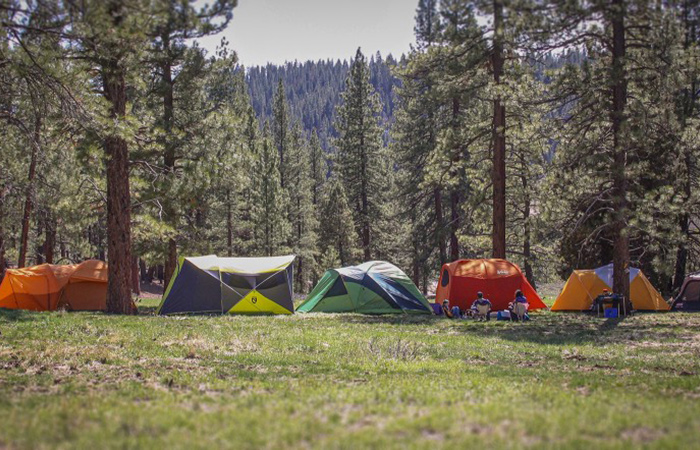
Choosing the right camping tent is crucial for a successful and enjoyable outdoor adventure. Whether you're a seasoned camper or a beginner, the tent you select will play a significant role in providing shelter, comfort, and protection from the elements. With numerous options available on the market, it can be overwhelming to decide which tent is best suited for your needs. In this guide, we will explore several key points to consider when choosing a camping tent, ensuring that you make an informed decision for your next outdoor excursion.
Points to Consider:
Tent Size and Capacity: The first aspect to consider is the size and capacity of the tent. Determine the number of people who will be using the tent and factor in the gear and belongings that will be stored inside. Ensure that the tent offers enough space for everyone to sleep comfortably and move around without feeling cramped.
Tent Type: There are various tent types available, including dome tents, cabin tents, backpacking tents, and more. Each type has its own advantages and disadvantages. Dome tents are lightweight, easy to set up, and provide good stability in windy conditions. Cabin tents offer more headroom and spacious interiors but can be bulkier and heavier. Consider the type of camping you will be doing and choose a tent that suits your specific requirements.
Seasonality and Weather Resistance: Consider the weather conditions you are likely to encounter during your camping trips. Tents are typically categorized as three-season or four-season tents. Three-season tents are suitable for spring, summer, and fall, providing ventilation and protection from mild weather. Four-season tents are designed to withstand harsher conditions, including winter camping with snow and strong winds. Choose a tent that matches the weather conditions you expect to encounter.
Tent Weight and Portability: If you plan to hike or backpack to your camping destination, the weight and portability of the tent are crucial factors. Lightweight tents are designed to minimize weight and pack down compactly, making them easier to carry. However, keep in mind that ultralight tents may sacrifice some durability and space.
Tent Durability and Materials: The durability of the tent is essential for its longevity and resistance to wear and tear. Look for tents made from high-quality materials, such as ripstop nylon or polyester, with reinforced stitching and sturdy poles. These materials should be waterproof and capable of withstanding the elements.
Tent Setup and Ease of Use: Consider how easy the tent is to set up and take down. Look for tents with intuitive designs, color-coded poles, and clear instructions. Freestanding tents are generally easier to set up and offer more flexibility in terms of campsite selection.
Choosing the right camping tent requires careful consideration of various factors, including size, type, seasonality, weight, durability, and ease of use. By assessing your specific needs and the conditions you will encounter, you can make an informed decision and select a tent that provides comfort, protection, and enjoyment during your outdoor adventures. Remember to prioritize quality and invest in a tent that will withstand the test of time, ensuring many memorable camping experiences in the years to come.
Established in 2013, FamilyNeeds.net is connected to your lifestyle and everyday life. Publish reviews of your life, style, fashion and essentials.